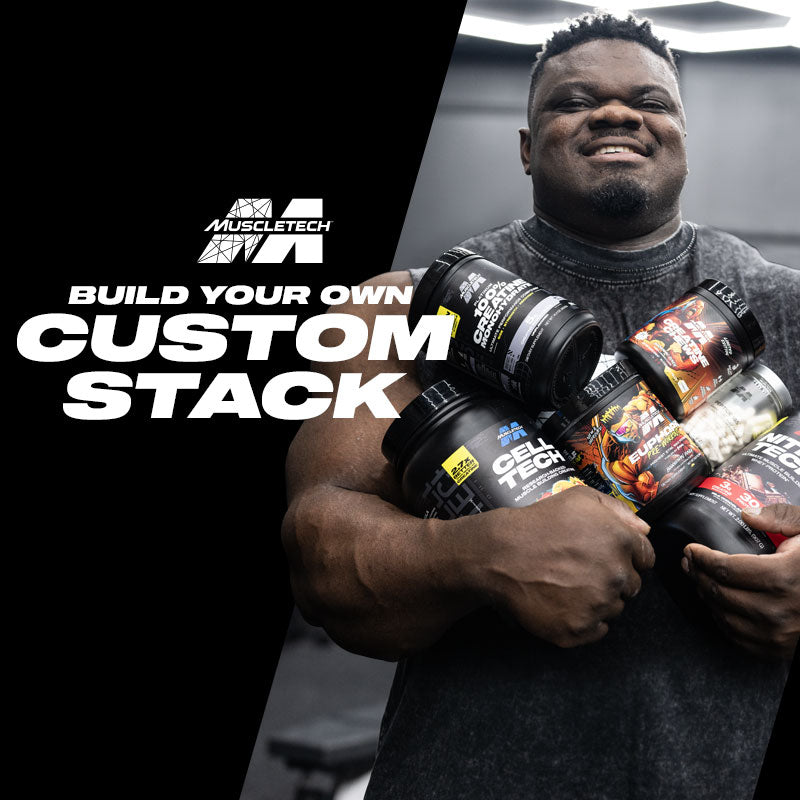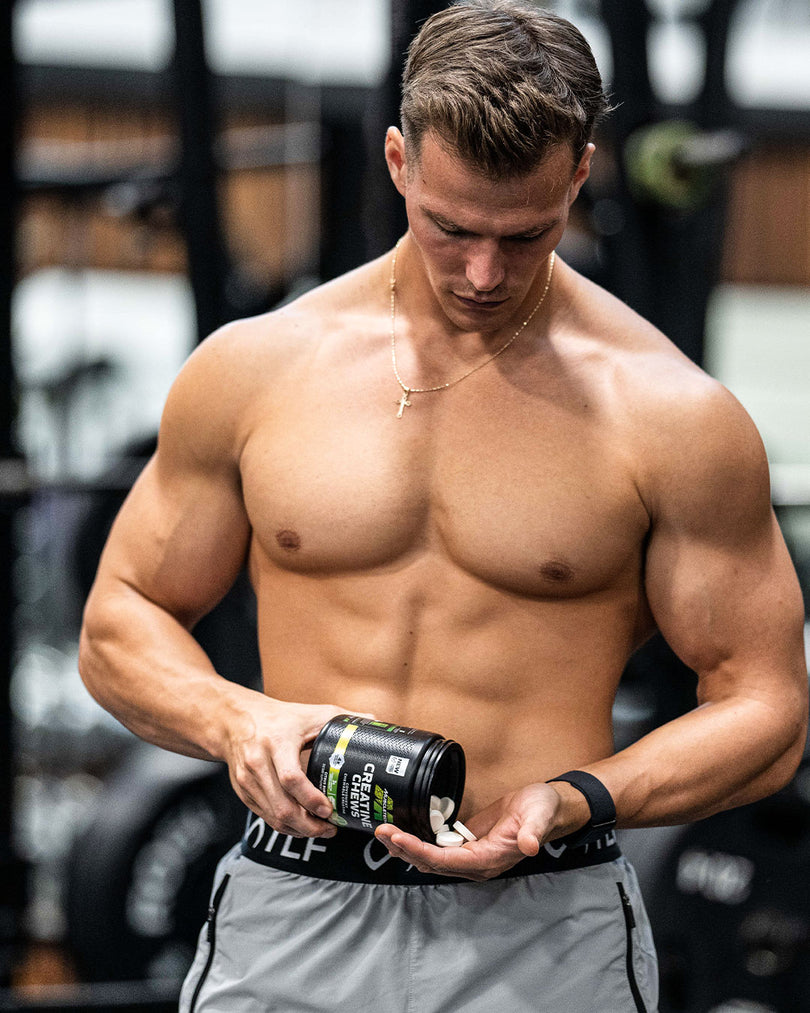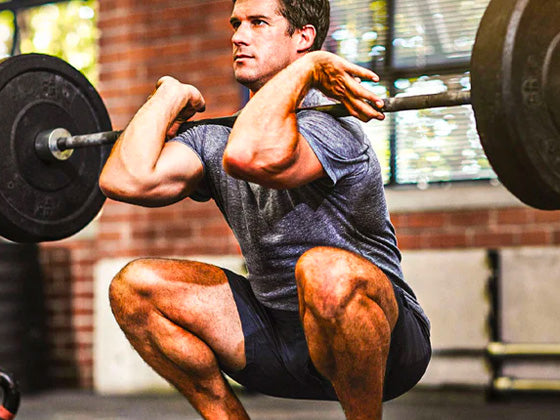BCAA
Filters
Free Shipping
40 Servings
7G BCAAs‡
Boost Endurance Performance
Replenish Electrolytes
Popular
Free Shipping
30 Servings
7.4G EAA‡
4.5G BCAA‡
Protein synthesis
What are BCAAs?
Branched-chain amino acids (BCAA’s) are essential nutrients. They are building blocks of proteins found in food. The names of the specific amino acids that make up the branched-chain amino acids are leucine, isoleucine, and valine. Their chemical structure resembles the branches of a tree, hence the name.
What do BCAAs do?
The Building Blocks of Muscle BCAAs, which include leucine, isoleucine, and valine, are a vital group within the Essential Amino Acids. These amino acids are distinguished by their branched-chain molecular structure. BCAA’s stimulate the building of protein in muscle and possibly reduce muscle breakdown. In the realm of fitness, they are celebrated for their significant role in muscle repair and growth. What are BCAA’s good for?
They are also commonly used to improve athletic performance, prevent fatigue, reduce muscle breakdown, and other improve recovery. MuscleTech’s Amino Build is scientifically dosed to improve strength and help recovery.
When to take BCAAs?
For better results, BCAA’s should be consumed pre-workout (about 30 minutes before) or intra-workout. MuscleTech has designed its BCAA product to help you reach your maximum potential by carefully formulating the Amino Build to meet your body’s demands for growth and strength.
How many BCAAs per day?
If you want to try the MuscleTech’s product, try taking 1 scoop per day (16g). Different products have different concentrations and hence recommendations. Try sticking to the recommendations on the label.
What foods have BCAAs?
Beef, Poultry, Salmon, Tuna, Eggs, Milk, Cheese, Yogurt, Nuts, Peanut butter, Quinoa, Soy products, Beans, Lentils, and Peas.
How do BCAAs work?
BCAAs help with structure, transport, signaling, and many metabolic processes. BCAAs help to build muscle, because of their role in protein synthesis and turnover, and energy regulation. BCAAs also play a role in glucose metabolism and immune and brain function.
What do BCAAs do for workout?
BCAAs are essential and play an integral role in muscle function, that supplementing with even more of them will yield greater and/or faster results of increased strength and faster recovery.
How many BCAAs are there?
BCAA’s are made up of three separate essential amino acids — leucine, isoleucine and valine.
What do BCAAs do for your body?
BCAAs may increase muscle growth, reduce soreness and fatigue, prevent muscle wasting, and support muscle recovery and strength, build lean muscle and enhance endurance performance. MuscleTech has created a well-researched product that helps you extract all the benefits of BCAA’s, Amino Build.
What are the benefits of BCAAs?
BCAA supplements have been shown to build muscle, decrease muscle fatigue, and alleviate muscle soreness.
What do BCAAs do for women?
BCAA supplements for women can help reduce soreness, improve body composition with exercise, and reduce l fatigue.
How much BCAAs is too much?
A typical BCAA dosage for muscle enhancement is up to 20 grams a day taken in divided doses. The exact dosage and optimal ratio of leucine:isoleucine:valine is still a matter of debate, but most research studies supplemented within a range of 3-20g BCAAs per day, usually split into multiple doses. MuscleTech’s product is optimized to achieve maximum results if taken as per the label instructions.
How long does BCAAs last in your system?
Studies have indicated that BCAA blood plasma concentration peaks thirty minutes after ingestion. Two hours after ingesting a beverage that contains 2,000 milligrams or more of BCAA, concentrations higher than before ingestion are maintained, but 1 hour after ingesting a beverage that contains 1,000 milligrams or less of BCAA, the concentration has returned to pre-ingestion levels.
Why are BCAAs Important?
BCAAs are essential amino acids. The body is unable to create them, so a person needs to get BCAAs from their diet or as supplements. Research suggests that taking BCAA supplements may improve muscle mass and performance and may reduce muscle damage from exercise. BCAAs may also benefit people with liver disease.
What foods are high in BCAAs?
Beef, Poultry, Salmon, Tuna, Eggs, Milk, Cheese, Yogurt, Nuts, Peanut butter, Quinoa, Soy products, Beans, Lentils, and Peas.
Where do BCAAs come from?
Branched-chain amino acids (BCAAs) are essential nutrients including leucine, isoleucine, and valine. The human body cannot produce them and hence need to be supplied through diet or supplements. They're naturally found in meat, dairy, and legumes. MuscleTech Amino Build is a supplement crafted carefully with results backed by science for improved performance.
How many BCAAs a day to build muscle?
The best way to take BCAA’s is in a 2:1:1 ratio to help fuel skeletal muscles, preserve muscle glycogen stores and reduce protein breakdown. MuscleTech has created a powerful pre- and intra-workout complex containing a massive 7g dose of 100% free-form BCAAs. AMINO BUILD® also features a clinically studied 2.5g dose of betaine added to the formula that helped subjects significantly enhance their muscular endurance.
What happens if you take BCAAs without working out?
It's not a bad idea to take BCAA's even if you don't work out. This can ensure that you'll get adequate amino's to repair or build whatever proteins your body needs on a daily basis, especially if you are dieting.
Who should take BCAAs?
Considering its positive effects, from recovery, to energy, to muscle growth and protein synthesis - BCAAs are highly effective at supporting athletic performance and muscle repair. Studies of BCAA supplementation have not shown any adverse side effects when supplementation is taken in appropriate amounts and according to instructions. It might not be a bad idea to take it daily.
Does it matter when you take BCAAs?
For better results, BCAA’s should be consumed pre-workout (about 30 minutes before) or intra-workout. Dosage, consistency, and long-term use seem to play a larger role in their effectiveness. Both highly trained athletes and everyday fitness enthusiasts often supplement with branched-chain amino acids (BCAAs).
How are BCAAs different from protein?
One primary difference between BCAA vs. protein supplements is that BCAA supplements only contain three of the nine EAAs; leucine, isoleucine, and valine. Whey, casein, and pea protein each contain all essential amino acids needed for muscle recovery and muscle growth.
What are EAAs and BCAAs?
Amino acids are compounds that play many roles in the body and are often referred to as the building blocks of proteins.
The body requires 20 different amino acids for optimal growth and function. While all of these are essential for your health, only 9 are classified as essential. Essential amino acids (EAAs) contain 9 amino acids, including branched chain amino acids (BCAAs). BCAAs contain leucine, isoleucine, and valine.
As EAAs can’t be made by the body, they must come from diet or supplementation. Amino acids are found in protein-rich foods such as meat, fish and soybeans. Supplements are also a great way to boost EAA and BCAA intake, resulting in improved athletic performance, recovery and general well-being.
Where to buy BCAAs?
BCAA’s can be bought on all major retail outlets. Before buying, make sure to check the best product that is scientifically proven to help you increase mass and enhance endurance. Check out the products at MuscleTech that are very efficient in supplying BCAA’s.
‡Per Serving














